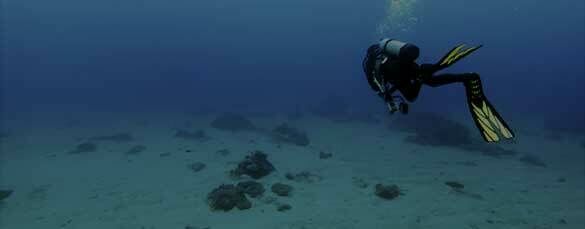Anticoagulants
Anticoagulants are used to reduce the risk of thrombosis or embolism. Clearly some underlying conditions requiring the use of anticoagulants are in themselves an absolute contraindication to diving whatever treatment is given and this should be considered when assessing fitness to dive.
The risks of SCUBA diving while anticoagulated are secondary to haemorrhage, assuming the underlying condition is adequately treated by effective anticoagulation. No definite interaction is known between hyperbaric pressure and anticoagulation, although decompression can cause a relative thrombocytopenia that may aggravate any bleeding. This is believed to result from platelet consumption by adherence to bubbles.
There are a number of situations that can cause haemorrhage when diving including physical trauma, auditory or pulmonary barotrauma, and mask squeeze. Of more concern, the post-mortem findings of decompression sickness include haemorrhage in the spinal cord and it is possible that anticoagulation will increase the risk of major haemorrhage. This may cause serious neurological complications such as paralysis and divers should be made aware of these risks.
Furthermore, anticoagulation increases the risk of epistaxis and this may impair vision if the mask is filled with blood. It may also lead to spurious haemoptysis which may be mistaken for pulmonary barotrauma. Cerebral haemorrhage is less common but if this occurs underwater it may present as a diving related illness and this could delay treatment for a serious intracranial bleed. The annual mortality and morbidity for sudden haemorrhage in anticoagulated subjects are 0.2% and 2% respectively.
A decision regarding fitness to dive should be made on an individual basis and the following diving restrictions will apply:
- Maximum depth limit of 20 metres
- No stop diving using tables rather than dive computers
- Frequent INR checks and if possible an INR measured within 7 days of diving
- Diving is not advised if INR is greater than 3.0
- Use self monitoring devices where available (similar to diabetic monitoring)
There is insufficient evidence available to recommend diving on Novel Oral Anticoagulants (NOAC) e.g. Dabigatran, Rivaroxaban, Apixaban. Whether is it possible to temporarily stop the NOAC to permit diving should be discussed in advance with the cardiologist / haematologist and diving medical referee to ascertain a balance of risks.
There is insufficient evidence to recommend diving on the antiplatelet agents Clopidogrel, Ticagrelor and Prasugrel.
This information is for guidance only and it is recommended that any case seen by a referee should be referred to the Medical Committee.



